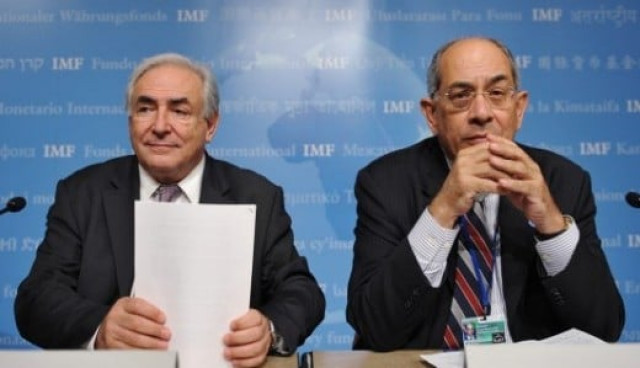Emerging countries to demand bigger say at WB

Bank president Robert Zoellick has said its 186 shareholders will be asked to approve a "once-in-a-generation request" to raise the bank's capital by five billion dollars, more than half of which would come from developing countries.
The bank also planned to "decide on whether to give developing countries a bigger say in the running of the institution," he said ahead of the meeting, as the iconic world body reflected a shift in influence away from traditional global powers.
Emerging countries now have 44 percent of voting rights in bank decisions following a first phase of reforms in 2008, Zoellick noted. He said early this month that with the bank's first capital increase in more than 20 years, "shareholders face a decision to strengthen the Bank Group, or allow it to wane in influence, losing an effective multilateral institution and leaving it poorly resourced to cope with whatever comes next."
The capital hike is aimed at covering some of the more than 100 billion dollars in bank commitments made since July 2008 for loans, subsidies, financial sector investments and guarantees for private projects.
A similar shift in influence is being seen at the International Monetary Fund, which held its own meeting Saturday, even though the IMF was criticized for lacking ambition by a key emerging country, Brazil.
Changes at the IMF would essentially benefit China at the expense of European Union member countries which now have a strong voice on the Fund's executive board.
IMF managing director Dominique Strauss-Kahn told a press conference on Saturday he believed "the political will was strong" to address "a long list of questions," including the board's size and who would fill the post he currently holds.
A statement by US Treasury Secretary Timothy Geithner said: "We need to consider measures to make the executive board more representative and effective," and backed a plan to eliminate seats while preserving those held by emerging market and developing countries. "The goal is to achieve legitimate representation based on countries' economic weight in the world," Geithner said.
His Brazilian counterpart Guido Mantega expressed dismay, however, at "the lack of ambition" in IMF plans to rebalance how much its 186 members paid in and their subsequent level of representation, and slammed "resistance to change." And the international aid group Oxfam agreed that "reform of the IMF's governance is happening far too slowly. "If the Fund is really an institution for the 21st century, where are the changes that will finally give poor countries a voice in policies that affect their futures," Oxfam spokeswoman Elizabeth Stuart asked.
At the World Bank, Zoellick forecast that Sunday's meeting would represent "a turning point" after "2009 saw the end of what was known as the Third World." "Economic and political tectonic plates are shifting," he noted, and added: "We can shift with them."


















COMMENTS
Comments are moderated and generally will be posted if they are on-topic and not abusive.
For more information, please see our Comments FAQ